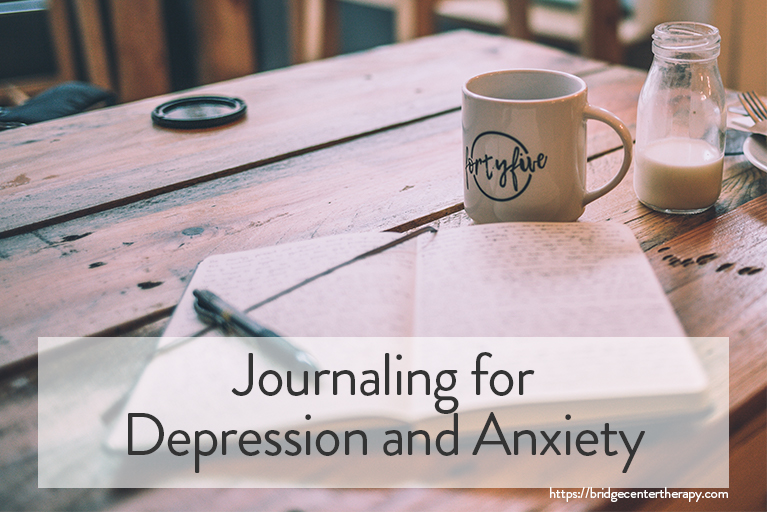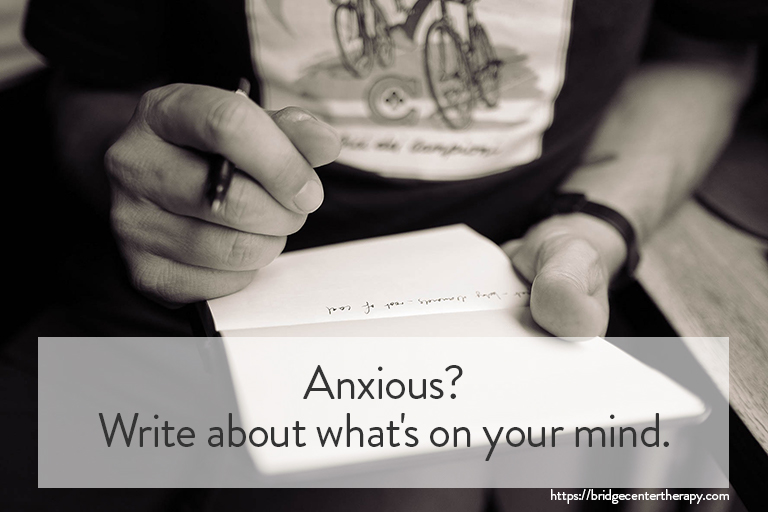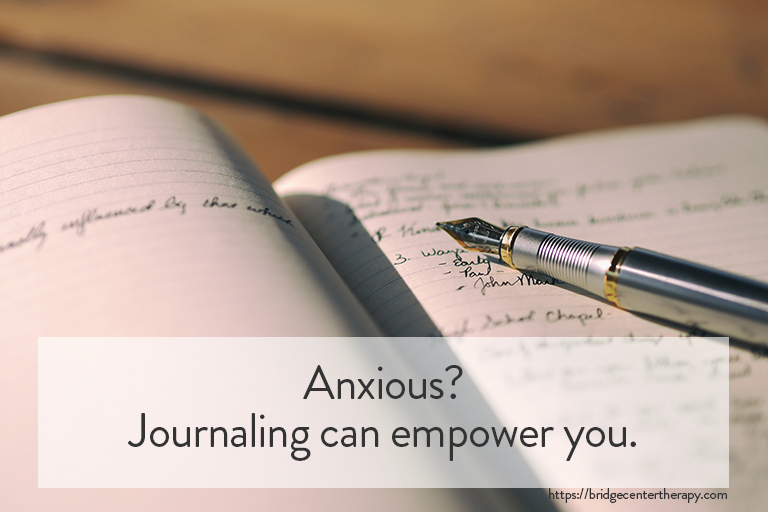
Journaling is often recommended as a stress management tool. It can help you clear your mind and make connections between your thoughts, feelings and actions. It can even help improve the symptoms of depression and anxiety.
In a previous post, we discussed the advantages of labeling your emotions when dealing with your anxiety. This is a natural outcome of journaling.
Journaling helps you get to know yourself better. You will be confronted by feelings and thoughts you were perhaps not even aware of, and acknowledging these thoughts and feelings will help you deal with them.
It lets you take control. When you are anxious or depressed you are often caught in a downward spiral of repetitive thoughts. Journaling helps to organize events in your mind, and to make sense of the emotions involved.
You can get there from here.
When you journal, you release your mind from the responsibility of processing every experience. This in turn helps you to sleep better and the associated mental health advantages are well known.
It can empower you. When you are aware of your thoughts and can get clear about the causes of your negative emotions, you can take an active role in changing that.

It can be difficult to know where and how to start.
Elizabeth Scott, MD (verywellmind.com) suggests the following approach:
Start by journaling for 5 to 15 minutes. Write about what’s on your mind, and what’s bothering you:
1- Write about your concerns, writing for several minutes until you feel you have written what needs to be said, but haven’t delved into a mode of rumination. You may prefer a computer, a journal, or just a pad and paper; if you are using paper, please skip a line or two for every line you use—this will be handy later.
2- Detail what is happening right now, describing the events that are currently causing difficulties. Keep in mind that, with anxiety, sometimes it isn’t what is currently happening that is causing stress, but rather your concerns about what could happen from here. If this is the case for you, it’s okay; you can write about what is currently happening and just note that the only part that is really stressful is the possibility of what could happen next. (This, in fact, may be a realization that brings some stress relief in itself.)
3- Next, write about your concerns and fears, and write in chronological order. In other words, start with one of the stressors you are contending with in the present, and explore what you think will happen next, then write what you fear will happen after that.
4- Write how this would affect you.

Make it easy for yourself. Keep your journal and pen near you. It takes time and practice to remind yourself to journal. It doesn’t matter what you write, you will feel better afterwards.
Need Help? We Can Help.
If you have any questions or require more information, please contact Lani here: lani@bridgecentertherapy.com
